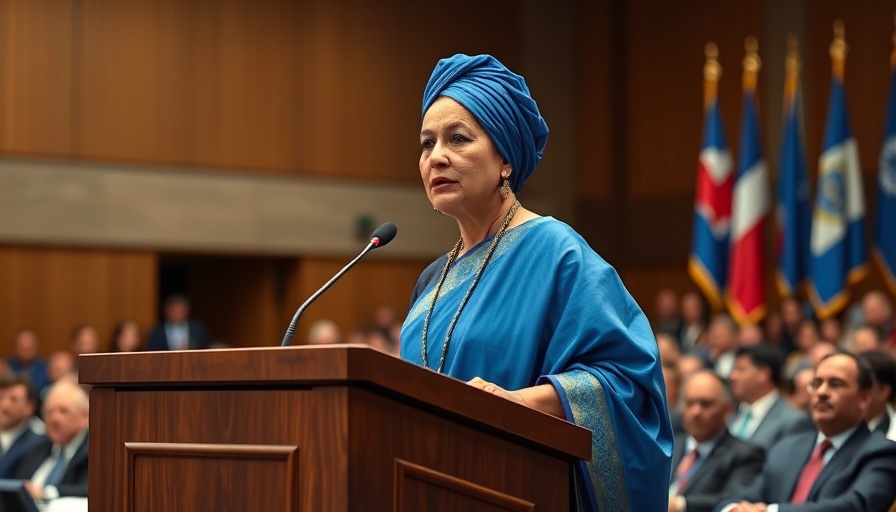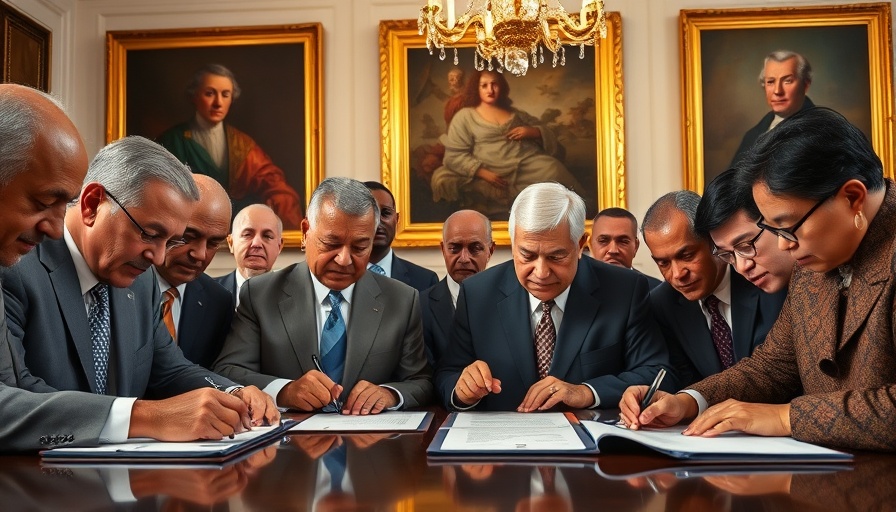
The Symbolism of Leadership: A New Era for Women in Africa
The year 2025 marks a significant milestone, celebrating the 30th Anniversary of the Platform for Action from the 4th World Conference on Women held in Beijing. This framework advocates for gender equality, particularly in leadership roles, emphasizing the need for women's voices in shaping policies and driving innovations essential for economic growth. President Netumbo Nandi-Ndaitwah of Namibia emphasized this during her keynote address at the USAfricaBizSummit, highlighting her journey as the first female president in Namibian history as an embodiment of progress towards gender equality across Africa.
Empowering Women to Shape Policy and Drive Innovation
President Nandi-Ndaitwah’s call for women's empowerment resonates deeply within a context of shared commitment across African nations to uplift women’s leadership positions. Namibian women now occupy a formidable 57% of cabinet positions. This not only showcases leadership but also introduces a paradigm shift in governance structures, as noted by many political analysts observing current governance trends in Africa.
Breaking Barriers: Challenges and Opportunities Ahead
While Namibia's achievements in women’s representation and entrepreneurship are commendable, challenges such as limited access to capital for women-led businesses persist. Efforts to bridge this gap include special financial instruments geared towards women in SMEs, particularly in crucial sectors like agriculture and technology. Moreover, investment in STEM programs for girls is essential to ensure that youth are adequately prepared to contribute to the digital economy, which is rapidly evolving in Africa.
Creating a Framework for Inclusive Prosperity
At a continental level, Namibia stands as a proactive participant in the African Continental Free Trade Area (AfCFTA), reinforced by the AfCFTA Protocol on Women and Youth in Trade. This initiative seeks to empower women entrepreneurs and address deep-seated structural inequalities that hinder equitable participation in trade. Such policies are pivotal for enhancing Africa’s role as a competitive player in global markets.
Your Role in Empowering Women’s Leadership
The call for gender equality resonates beyond policymaking; it challenges society to break the status quo that often sidelines women and promotes cultures that inhibit their participation. As leaders and investors, it's crucial to consider how your decisions can influence the socio-economic landscape of Africa. Engaging with women-led initiatives not only benefits the economy but also resonates with a growing global emphasis on corporate responsibility.
This call for action extends to all stakeholders: embrace investment in businesses owned by women, support policies that foster inclusion, and actively participate in dialogues around women’s leadership. Embracing these changes can ensure that the legacy of Namibia and similar nations does not remain an isolated narrative but a collective ambition across the continent.
 Add Row
Add Row  Add
Add 


 Add Row
Add Row  Add
Add 

Write A Comment